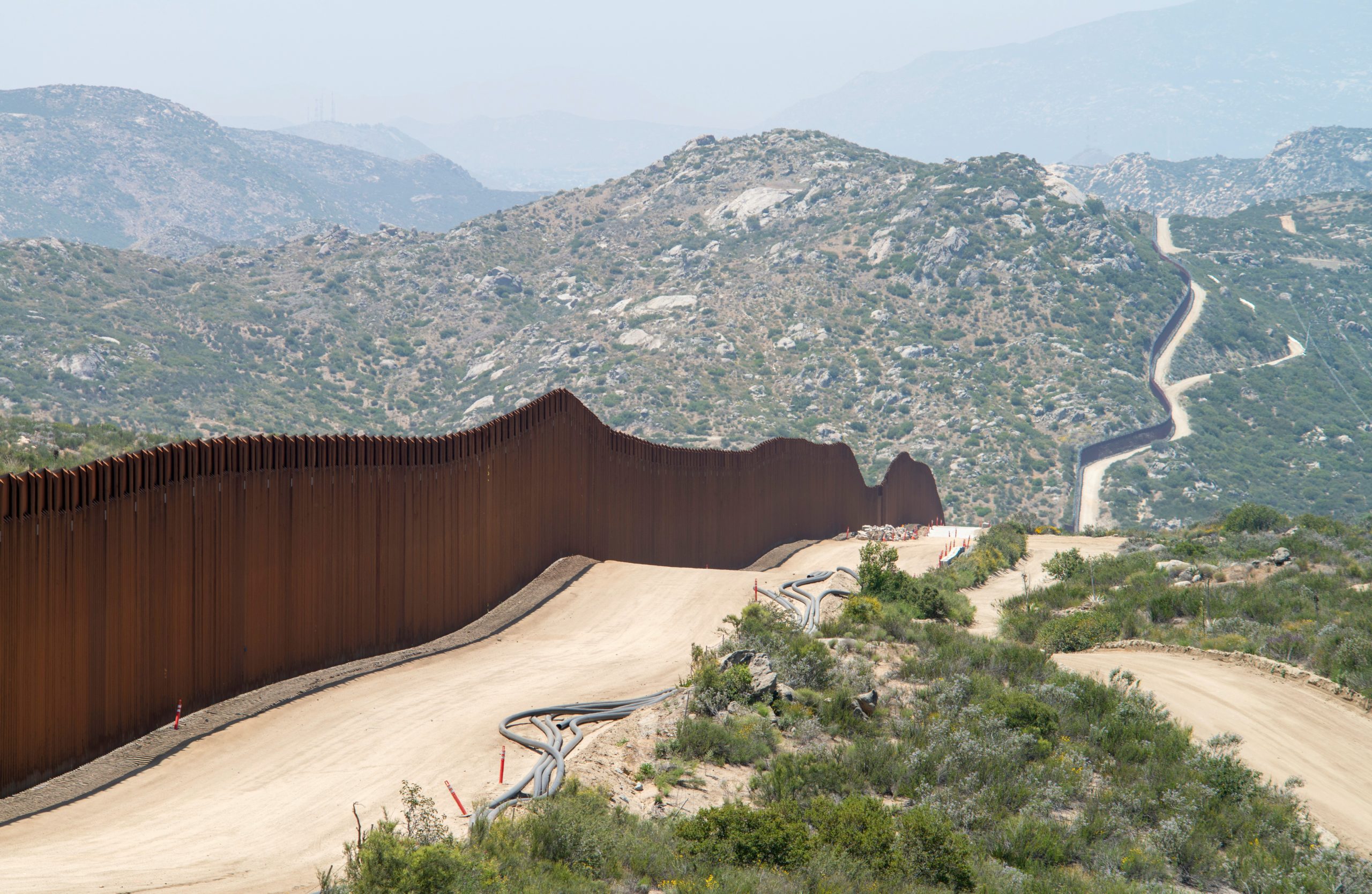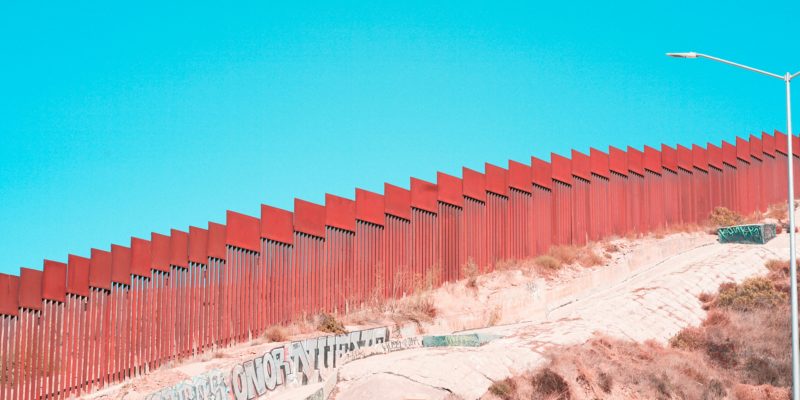Contrary to the widely recognized punitive framework within the U.S. immigration system, entering the U.S without authorization was not always regarded as a criminal act. Before the late 19th century, the U.S. lacked formal immigration restrictions. While authorities had the power to deport immigrants who didn’t use an official entry point, they were precluded from detaining and prosecuting them for a federal offense. However, a significant shift occurred in 1929 with the enactment of Section 1325, marking the first instance of criminalizing undocumented immigration along the U.S.-Mexican border.
Since then, there has been a slew of other legislation that supports and funds human resources, weapons, and surveillance technology to uphold this crimmigration apparatus. Now, Customs and Border Patrol (CBP) and Immigration and Customs Enforcement (ICE), two key U.S. agencies that manage migration, have the authority to arrest, detain, and search migrants without a warrant.
The most recent manifestation of crimmigration policy is evident in Texas, USA. In 2021, Republican Governor Greg Abbott launched Operation Lone Star, a multi-billion dollar state-led border security effort that criminalizes asylum seekers and other migrants. Abbot declares “We are arresting and jailing anyone who comes across the border illegally and trespasses on private property or on public land.” Under this operation, Texas has prosecuted migrants for state crimes, jailed migrants without charges or access to a lawyer, and added thousands of Texas state troopers and National Guard soldiers to patrol Texas’1,254 mile border with Mexico.
Beyond criminalization, this operation is also widely known for contributing to severe harm and even death of migrants. National Guard and Texas state troopers deter migrants with trespassing arrests, razor wires, and a floating barrier of four-foot-wide spiked border buoys anchored to the river bottom in the Rio Grande. This has resulted in needless harm to oceanic refugees who, fleeing violence and persecution in their home countries, seek safety in Texas only to find themselves in physical danger at the hands of U.S authorities.
That is not all.
In December 2023, Texas’ crimmigration apparatus escalated when Abbott signed into law two new immigration bills. Senate Bill 3 (SB3) grants Texas $1.54 billion for additional state troopers and an estimated additional 50 miles of border barrier. Senate Bill 4 (SB4) expands the power of Texas state officials to arrest, jail, prosecute, and deport migrants believed to have illegally crossed the border with Mexico.
Cornell University professor and immigration expert, Stephen Yale-Loehr, states that SB4 is “unprecedented” and “by far the most anti-immigrant bill that (he has) seen.”
In a radio interview, Abbot states “We are using every tool that can be used, from building a border wall to building these border barriers, to passing this law (…) making it illegal for somebody to enter Texas from another country.” He continues “the only thing that we’re not doing is we’re not shooting people who come across the border, because of course, the Biden administration would charge us with murder.”

WHAT DOES SB4 DO?
SB4 would further criminalize actions already deemed illegal at the federal level. Entering the U.S. outside an authorized port of entry is currently a federal offense, typically addressed as a civil matter in the immigration court system. SB4 seeks to reclassify illegal immigration as a state crime, with penalties ranging from a misdemeanor to a felony. This legislation is scheduled to be enforced starting March 2024.
Under SB4, unlawfully crossing into Texas from Mexico would be considered a Class B misdemeanor, carrying penalties of a fine up to $2000 or a maximum of 6 months in jail. The severity of the charge escalates to a felony, punishable by up to 20 years in jail, contingent upon the migrant’s criminal history, such as prior deportations or convictions for specific crimes. Furthermore, the law grants Texas county magistrates and certain judges the authority to order a person’s deportation without due process.
The legislation enables a judge to drop charges if a migrant consents to voluntary return to Mexico. However, migrants who choose not to return to Mexico immediately would fulfill their sentence and subsequently be escorted by the police to a designated port of entry. At this stage, they might be subject to a felony charge for their refusal to return to Mexico.
When questioned about Texas’s course of action if Mexico refuses to accept migrants deported by the state, Abbott stated, “We’re going to send them right back to Mexico.“ Given that the Mexican government is not obligated to accept non-Mexican immigrants deported by Texas, Abbott’s approach does not solve the cycle of migrant crisis, but rather perpetuates it. SB4 has the potential to strain U.S. relations with Mexico and impede officials from enforcing federal immigration laws, including those intended to support migrants escaping violence and persecution from their home countries.
WHAT ARE THE IMPLICATIONS OF SB4?
Texas’ current strategy of criminalizing immigration carries various implications for the power of the state, as SB4 tests the limits of state action and state police power on border enforcement. Immigration law experts contend that Texas is overstepping its authority, as immigration and deportation procedures have traditionally fallen under the jurisdiction of the federal government, rather than the state government. Thus, SB4 is unconstitutional because immigration enforcement is a federal responsibility.
Although the U.S. Supreme Court previously ruled that immigration laws can only be enforced by the federal government, some Texas Republicans have voiced hope that the new law will be supported by the current U.S. Supreme Court, given that former President Donald Trump appointed three conservative justices during his presidency. Abbott and proponents of SB4 contend that the legislation is necessary to deter unlawful border crossings and to address what they perceive as inadequate efforts by the Biden administration in managing the migration crisis.
With the 2024 election fast approaching, Harris County Judge Lina Hidalgo speculates that Texas elected officials are using SB4 to “weaponize immigration” and “score political points.”
SB4 has received national and federal pushback. On Jan 4 2024, the U.S. Department of Justice filed a lawsuit claiming that SB4 interferes with the federal government’s constitutional authority to regulate immigration. Moreover, the ACLU filed federal litigation seeking to block the law.
Beyond legalities, opponents of the measure have criticized SB4 as unnecessarily punitive and could result in racial profiling and instill fear in immigrant communities in a state where 40% of the population is Latino. Marisa Limón Garza, Executive Director at Las Americas Immigrant Advocacy Center in Texas, cautioned that SB4 could subject residents to unjust interrogations, searches, seizures, and arrests “based on how ‘foreign’ they look and how they behave.”
As one of the most stringent state anti-immigration laws in recent U.S. history – SB4 – approaches, it is crucial for the international community to remain attentive.
[Photos Credit: Barbara Zandoval via Unsplash, Greg Bulla via Unsplash]









